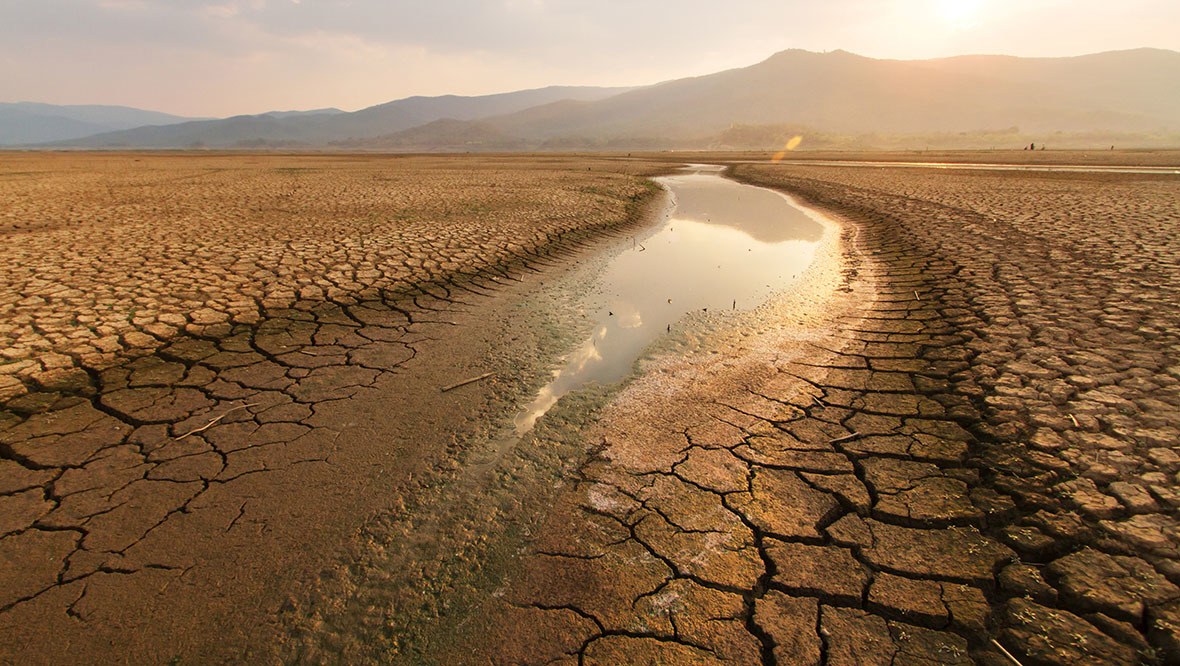Just days before the opening of COP26 in Glasgow back in 2021, then first minister Nicola Sturgeon stated it was a “huge honour” for Scotland to host the global extravaganza.
She said she was proud the city “that helped lead the world into the industrial age has the opportunity now to help propel the world forward into the net zero age”.
Sturgeon asserted that Scotland had the “most stretching targets in the world”.
But the flagship target of reducing greenhouse gas emissions by 75% by 2030 has now been abandoned.
It comes after the independent Climate Change Committee said Scotland’s 2030 goals were no longer credible.
The optimism around the legacy of Glasgow COP26 has been replaced by fierce criticism from charities accusing the Scottish Government of “broken promises”.
It is also being seen as a major climbdown for the administration at Holyrood – where Green politicians are now in government thanks to a power-sharing agreement with the SNP.
What were Scotland’s climate targets?
Scotland set a flagship target of a 75% reduction in emissions by 2030 and 90% by 2040 – relative to 1990 levels of carbon dioxide, methane and nitrous oxide, and 1995 levels of hydrofluorocarbons, perfluorocarbons, sulphur hexafluoride and nitrogen trifluoride.
The target was tougher than for the UK as a whole, which was for a reduction of 68% by the same date.
It is understood the Scottish Government’s final goal of reaching “net-zero” by 2045 will remain.
The ambitious climate goals were introduced just years before Scotland welcomed heads of state and climate leaders from across the world to Glasgow, where Sturgeon’s government became the first in the world to declare a climate emergency.
But the euphoria and optimism from that summit on the banks of the River Clyde has since subsided.

A report from the Climate Change Committee (CCC) published in March said that, for Scotland to achieve its goal of cutting harmful emissions by 75% by then, the rate of emission reduction in most sectors would need to increase by a factor of nine in the years up to the end of the decade.
As a result, it said: “The acceleration required in emissions reduction to meet the 2030 target is now beyond what is credible.”
What went wrong?
The Scottish Government has missed its legally binding annual emissions reduction targets in eight out of the last 12 years.
Last month, the CCC said Scotland had “no comprehensive delivery strategy for meeting future emissions targets”.
It went on to state “most key indicators of delivery progress are off track”, with the report adding this was “significantly so” for tree planting and peatland restoration rates, heat pump installations, electric van sales and recycling rates.
It said: “By the end of this decade, Scotland will need to: treble the pace of rollout of public electric vehicle charge points, reduce car traffic by 20%, increase heat pump installation rates by a factor of at least 13 and double onshore wind capacity.
“Woodland creation will need to more than double by the mid-2020s and peatland restoration rates need to increase significantly.”
 iStock
iStockLooking at transport, the CCC said sales of electric cars and vans were lower than in the UK as a whole – with only 2% of new vans sold in 2022 being electric models.
The peatland restoration target has also been missed for the fifth consecutive year, the report said, with the rate now “needing to nearly triple to reach the Scottish Government’s own target, which is in turn lower in ambition than the CCC’s recommended rate”.
How have charities reacted to the target being scrapped?
Climate campaigners have described the move as an “acute global embarrassment” for the Scottish Government.
Jamie Livingstone, head of Oxfam Scotland, said: “With the world becoming a dirtier and deadlier place every day, any decision by Scottish ministers to rewrite Scotland’s climate rulebook would be an acute global embarrassment.
“It would also be the direct and damaging consequence of the Scottish Government’s own dilly-dallying on climate action.”
Anne Callaghan, advocacy officer at the Scottish Catholic International Aid Fund, said: “Right now, millions of people are suffering on the front line of the climate crisis in places like Malawi, Rwanda, Ethiopia and Zambia. Every day they deal with loss of life, livelihoods and land from hunger, flooding and drought.
 iStock
iStock“Rich countries like Scotland have caused the climate emergency with our emissions, both now and in the past, and have benefited economically from using fossil fuels. Scientists tell us that we must cut emissions now or we risk making our world even more unliveable.
“The Scottish Government needs to step up and deliver a just transition to a low carbon economy. Without an emergency response that delivers at pace, we risk playing our part in making this planet hell on earth.”
What about the political reaction?
The Scottish Conservatives said the move was an “abject humiliation” for the SNP and Green government at Holyrood.
Net zero spokesman Douglas Lumsden said: “For all the boasting about their supposed environmental credentials, the reality is a succession of missed targets – and being forced to throw in the towel on this flagship pledge represents the biggest failure of the lot.”
The Tory MSP added: “This climbdown is not a surprise, given the damning report from the Climate Change Committee, but it is symptomatic of a Nationalist coalition that routinely over-promises and under-delivers.”

Meanwhile, Scottish Liberal Democrat leader Alex-Cole Hamilton described the move as a “generational betrayal from the SNP and Scottish Greens”.
He said: “For years we have had to endure smug lectures from nationalist ministers about how Scotland was a world leader on climate change. But when it came to doing the actual hard graft of insulating homes, planting trees or cutting emissions, they have proven to be woefully incompetent.
“If the government had got on with tackling these issues years ago, the 75% target would have been achievable. Instead they traded environmentalism for nationalism.
“It’s bare faced cheek to blame others while botching recycling schemes, hiking rail fares and leaving households in the cold.”
Follow STV News on WhatsApp
Scan the QR code on your mobile device for all the latest news from around the country




























